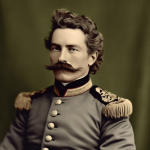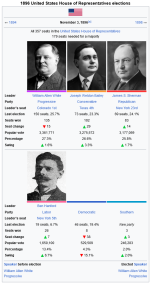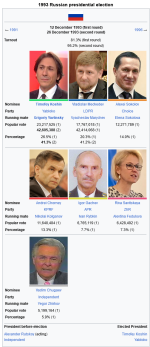When doing the maps and writing up the stuff, I sometimes come up with other stuff. Figured it would be cool to share.

(1887-1949) was the first President of the
Most Provident Republic of Nicaragua from his inauguration in 1929 to his resignation in 1941. A Leaguer of British ancestry, he was a fervent believer in the supremacy of the
"Anglo-Latin" people - i.e. the English and British peoples. While still firmly within the Imperium's belief of the supremacy of
all Europeans, he advocated for more lands to be allocated to be managed by the Anglo-Latins. The purchase of the Nicaragua Territory from the Spanish Union was one advocated by the United League and furthered through the
Nicaragua Company, and Gélien inaugurated as the fledgling Republic's first President.
Gélien's presidency would set the scene, with a firm racial hierarchy of Anglo-Latins at the top, Criollos below them, and generally mapping the old Spanish
casta laws on to the Nicaraguan hierarchy. This got him into verbal conflict with the Pepper Coast, but the UL successfully mediated between its two starkly divergent republics. But it can't be denied that Gélien back home was an opponent of the UL's growing abolitionist sentiment, and in Nicaragua he made it very clear that the old slavery would be continued, and this was very good news for Imperial companies seeking profit at any cost.
His statue in front of the Legislative Building was toppled in 2020 by the nationalist revolution in a rejection of his legacy.
Presidents of the Most Provident Republic of Nicaragua (1929-????)
Guílem Gélien (Democratic) 1929-1941
Jacob Morley (Democratic) 1941-1945
Bor Rínel (Legalist) 1945-1947
Míney Lenoual (Military) 1947-1960
Alexander Lewis (Independent) 1960-1967
Angus Robison (Nationalist) 1967-1974
Colo Brogemal (New Democratic) 1974-1981
Géled Gélien (New Democratic) 1981-1988
Edward Shaw (Nationalist) 1988-1995
McGeorge Tyler (New Democratic) 1995-2000*
Ardur Benewenté (New Democratic) 2000-2002
James A. Lockhart (Nationalist) 2002-2009
Curtis Melcuné (Salvation Union) 2009-20?? [Re-Election Amendment passed in 2013]
Terminology Update!
ANGLO-LATIN: Denoting the British [Romance-speaking] and English [Germanic-speaking] people of the British Isles. Defined expressly against first the Celtic and then the non-white colonised people, and by implicature includes the Norse people of the 'Law Lands' north of England and south of Scotland. The terminology was very popular in the late 19th and most of the 20th century, purposing a common descent of the English and Latin peoples of Britain, marking a shift from the historical ethnic alignment of the English and Norse against the British and Celtic. In the enlightened days of the 21st century, it is slowly realised to be quite a mistake in terminology, especially as the United Dominions has been very keen to redefine British as a more encompassing identity including all peoples of Great Britain. After all, all help in the great work of upholding Imperium...






